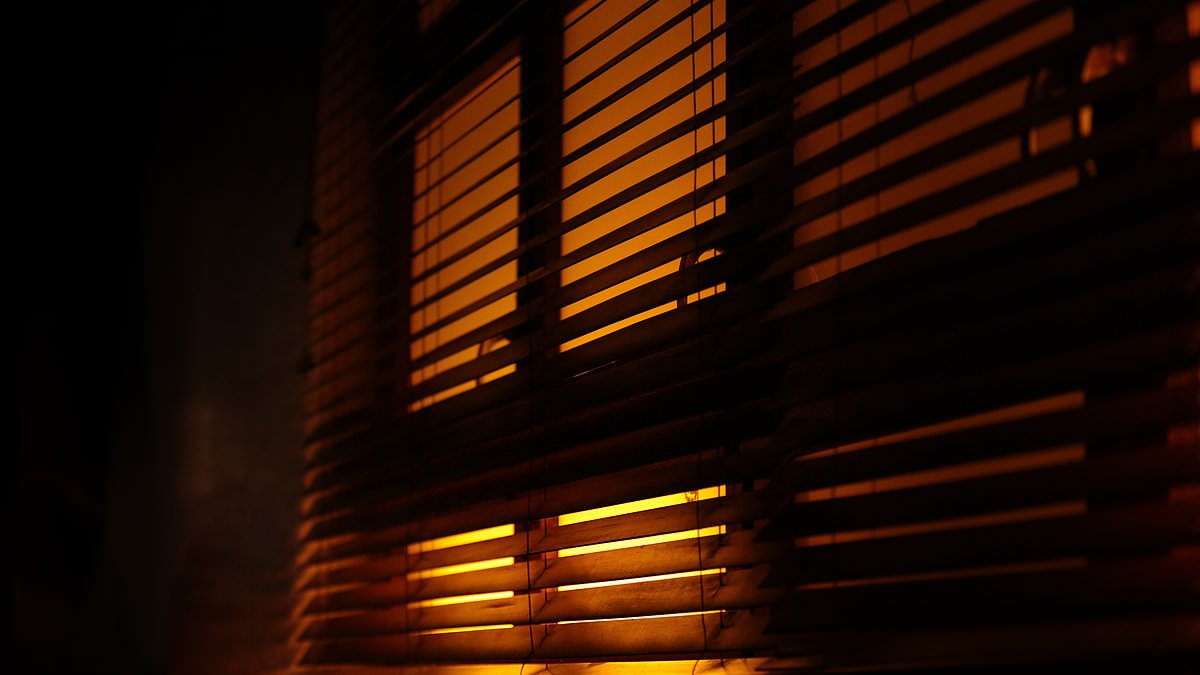Leaving your blinds open at night could increase your risk of Alzheimer’s, a study suggests.
Researchers in Chicago analyzed maps of excessive light exposure, also called light pollution, in 48 states.
The team then divided them into five groups ranging from lowest to highest nighttime light intensity.
The analysis revealed the higher outdoor nighttime light, such as from streetlights and neon signs, was linked to a higher prevalence of Alzheimer’s than any other risk factor in people under 65.
And those senior citizens, nighttime light pollution appeared to have a greater influence on the development of Alzheimer’s than alcohol abuse, depression and obesity.

Getting too much outdoor light exposure at night, such as city lights peaking through your window, could raise your risk of developing Alzheimer’s disease, according to a study
This could suggest that younger people may be particularly sensitive to the effects of light exposure at night, the researchers, from Rush University Medical Center, said.
It is unclear why younger people could be more vulnerable, but it could be due to individual differences in light sensitivity, they added.
Dr Robin Voigt-Zuwala, first author of the study, said: ‘We show that in the US there is a positive association between Alzheimer’s disease prevalence and exposure to light at night, particularly in those under the age of 65.
‘Nightly light pollution – a modifiable environmental factor – may be an important risk factor for Alzheimer’s disease.’
The researchers said they hope their findings could help educate people about the potential risks of light at night.
‘Awareness of the association should empower people – particularly those with risk factors for Alzheimer’s disease – to make easy lifestyle changes,’ Dr Voigt-Zuwala added.
‘Easy-to-implement changes include using blackout curtains or sleeping with eye masks. This is useful especially for those living in areas with high light pollution.’
Light exposure inside the home could be as important as light exposure from the outside, the team added.
While they did not examine the effects of inside light in the present study, they said that blue light has the greatest impact on sleep. However, using blue light filters, swapping to warm light, and installing dimmers in the home could effectively reduce light exposure.
The research adds to a long list of health effects from light pollution, including UV exposure irritating skin conditions and raising the risk of certain cancers.
One 2021 review, for example, found that overexposure to light at night increased the risk of breast cancer by 10 to 14 percent, as it suppresses melatonin production. Interrupted melatonin production has been dubbed a carcinogen, particurly for hormone-dependent breast cancers.
The new findings were published Friday in the journal Frontiers in Neuroscience.









